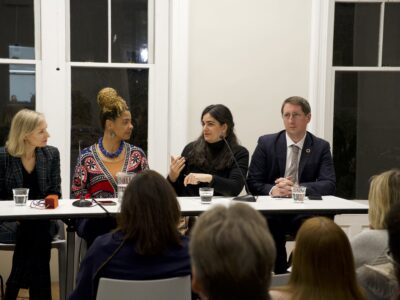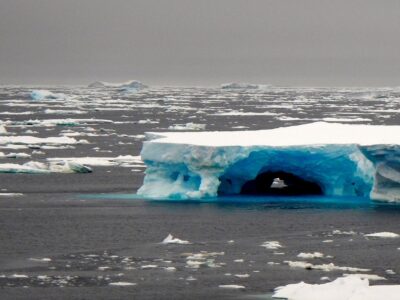While national governments can set goals for combating climate change, the decisions that lead to action will come from business leaders and personal choices. With a strong foundation of science, the business world can lead the way to a cleaner future.

Ignoring climate change is bad for business. Droughts can close the tap on water supplies that factories and farms rely on. Heat waves take a toll on agriculture and public health, and rising sea levels put properties and entire communities at greater risk of flooding.
These aren’t distant threats. They’re risks to businesses worldwide today—and opportunities for innovation.
To plan for a thriving future, business leaders need to understand how rising global temperatures can change their investment landscape in the near future. Those at the forefront already see the potential in climate solutions, such as cleaner energy and transportation, and products that improve water and energy efficiency. They now have a new resource to expand their knowledge base: Columbia University has launched the Center for Climate and Life to bring business, finance and science together to advance global understanding of the impact a changing climate will have on life’s essentials—food, water and shelter—and to find ways to make energy more sustainable.
“Scientific knowledge is a market force,” said Center for Climate and Life Director Peter deMenocal, who discussed the challenges ahead with business leaders during the UN Climate Summit in Paris. “With its focus on life systems and their responses to climate change, the center can address issues and find solutions to the most important challenges facing global societies today.”
The more than 70 scientists affiliated with the Center for Climate and Life have interdisciplinary studies underway across these areas and more, many of them at Columbia’s acclaimed Lamont-Doherty Earth Observatory. The center uses philanthropic impact funding and university support to fund research that will accelerate knowledge generation in these key areas.
Maureen Raymo, for example, leads studies to help forecast future sea level rise. Joerg Schafer’s work includes assessing the risks that nuclear power and hydropower plants face as glaciers they rely on for meltwater recede in warming temperatures. Richard Seager and his team examine the causes and impacts of regional-scale, multi-year drought events in the American West and Middle East regions. Sonya Dyhrman uses novel genomic methods to explore impacts of ocean acidification and warming on microbes that form the base of the ocean’s food chain. Other scientists and economists work on climate impacts on crop yields, pricing and food supplies.
Together, their research can provide the knowledge base necessary for business and finance to reduce their risk exposure and maximize emerging opportunities.
That knowledge and research skill drew the interest of the World Surf League, which is working with the Center for Climate and Life to develop a research program on the changing oceans. Aerospace giant Airbus is discussing another program, called AirBridge for Science, that would outfit an A320 fuselage as a flying scientific lab to conduct pole-to-pole missions studying changes in the Earth’s ice sheets, oceans, atmosphere and ecosystem health.
The Center for Climate and Life will host seminars and Climate-Business Roundtable events to bring scientists and business and finance leaders together to discuss cutting-edge climate research and business solutions. It also aims to change the dynamics of science funding by increasing private support for fundamental research, and it is developing a curriculum through Columbia’s School for Professional Studies for executives to expand their understanding of climate changes and inspire new ideas.
The Paris summit was only a beginning. The Center for Climate and Life is working beyond Paris toward a better future.
“Climate science is making great strides in defining how, when and why major components of the global climate and life systems are in flux,” deMenocal said. “For stakeholders, this knowledge is actionable power.”
Learn more about the Columbia Center for Climate and Life at Lamont-Doherty Earth Observatory.




